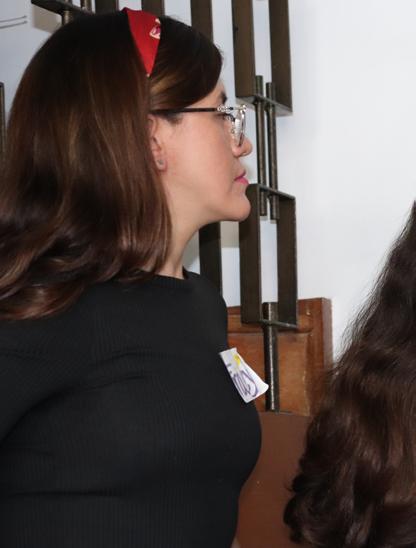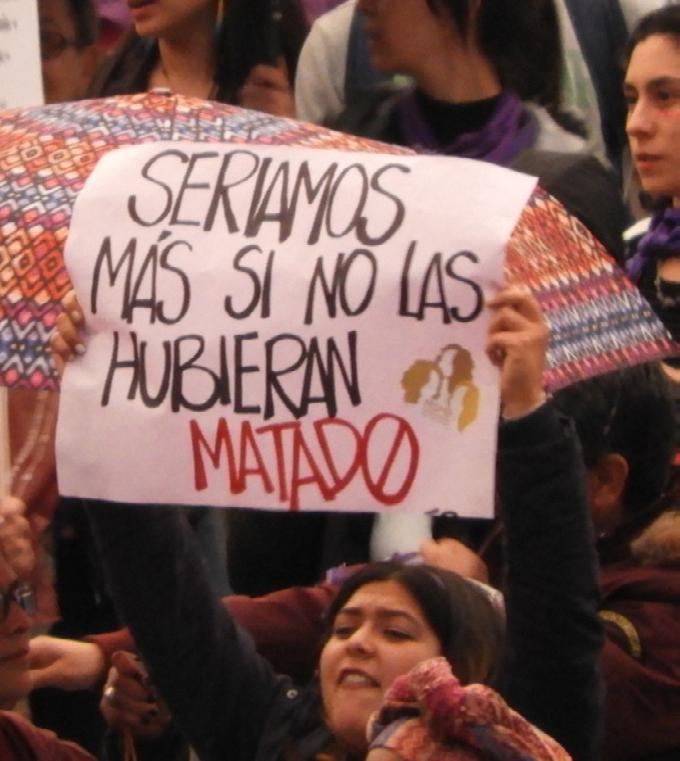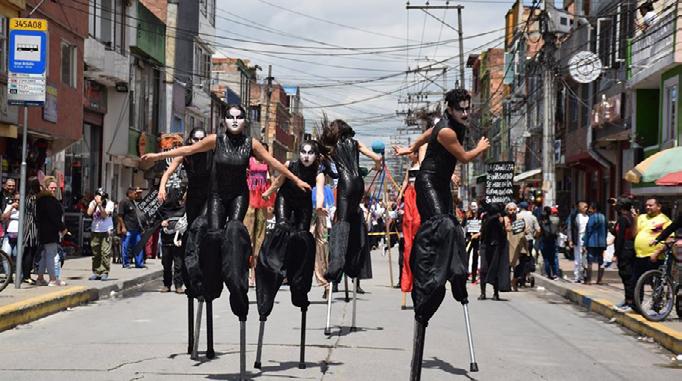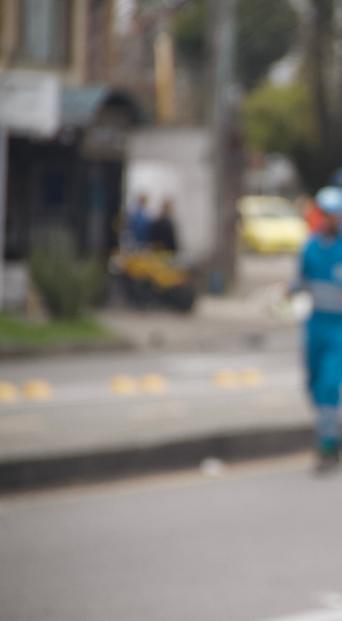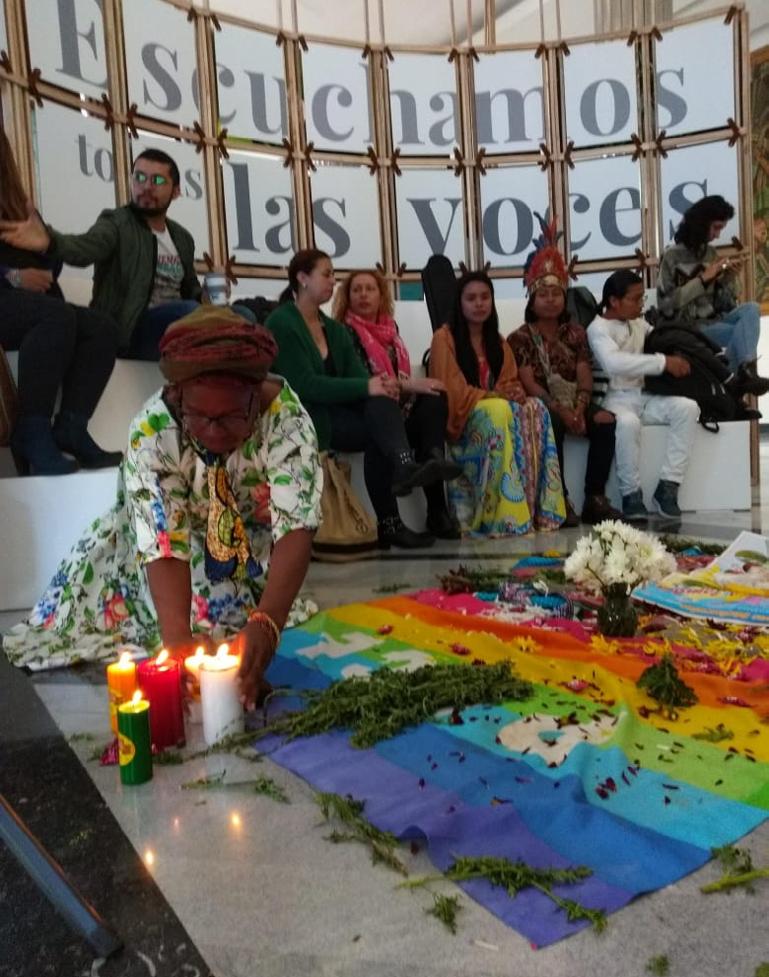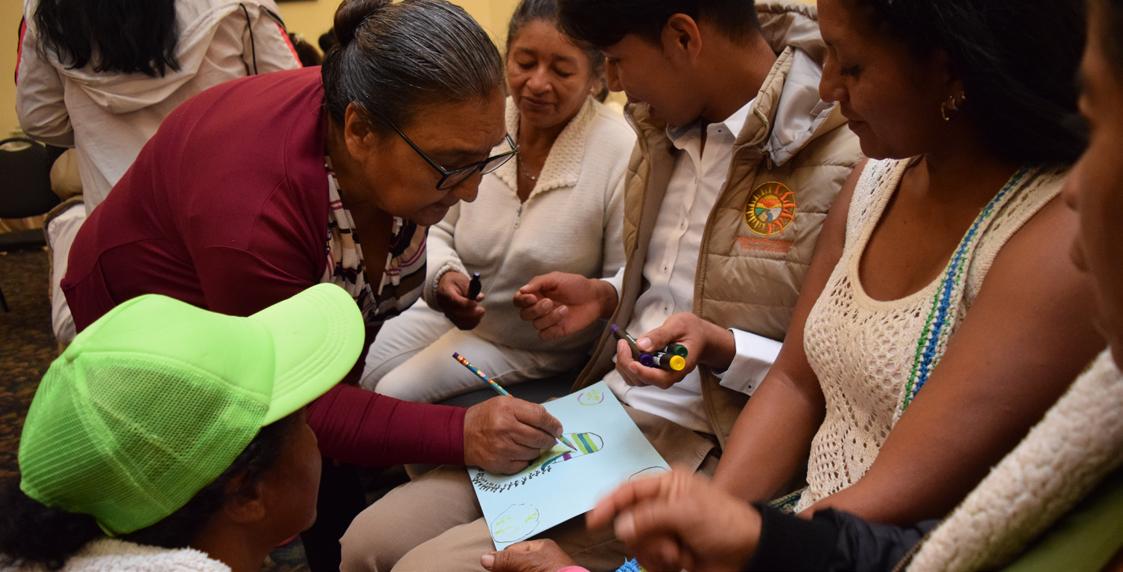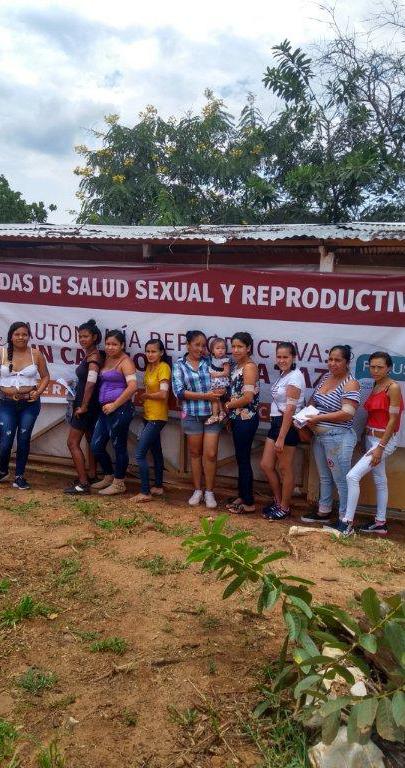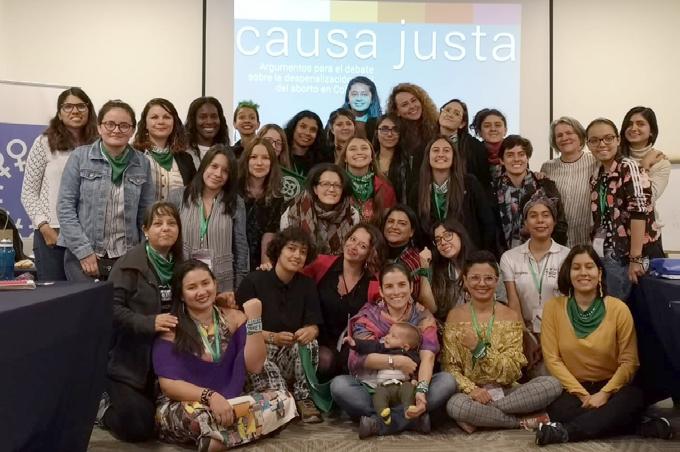
6 minute read
They aren’t victims of sexual violence, they are survivors
Olga Romero is an example of struggle, resistance, and peacebuilding amid the tragedy of sexual violence.
PHOTO : Corporación Humanas.
TEXT: MÓNICA LOZANO. Corporación Humanas Communications Staff.
I survived, but many have died,” says Olga Romero, legal representative of Supérate, la Asociación de Mujeres Renovadoras de Vida (Overcome! Association of Women Renovators of Life) from the department of Sucre. Hailing from Montería, Olga is a survivor of sexual violence, but more than that she is a teacher, leader, and peacebuilder. She, together with 55 indigenous, black, mixed-race, young, and adult women met on 14 November in Tolú to reiterate that peace is possible if, and only if, women, their rights, struggles, and resistance are taken into account. This was their message during the closing of the project Ágora de Mujeres para una Colombia en Paz (Women’s Agora for a Colombia at Peace), implemented by Corporación Humanas, and in thanks to the support of FOKUS in Colombia, which since 2011 has supported “
some Humanas projects specifically related to its work on peacebuilding and women’s access to sexual and reproductive health.
“We have worked with so many women, it has been wonderful. Also, talking about the Peace Agreement has shown us that sexual violence didn’t only happen here, but also in other countries,” said Olga, and she added that, in spite of these women’s challenges, “they have been able to move forward confronting all kinds of actors. That gives us strength and motivates us to work for those of us who survived.”
It is amid these same struggles that Supérate, la Asociación de Mujeres Renovadoras de Vida arose in the department of Sucre. In 2014 several victims of sexual violence from the Montes de Maria region met while filing complaints and processing paperwork with the Victims’ Unit and the Attorney General’s Office. “One said to the other: ‘hey, this happened to you, dare to make a statement.’ And that is how we became friends, seeking services together,” explains Romero.
OLGA’S STORY Olga comes from the rural community of Macayepo, in Carmen de Bolívar, an area that, during the roughest years of Colombia’s war, was disputed by the FARC guerrillas and paramilitaries. In fact, the victim’s family was displaced due to threats from the guerrillas.
“I had a relationship with a military man in Sincelejo, and two women had already been murdered in my town, one because she had a romantic relationship with a military man, and another because she did laundry for the military when they came through. Nevertheless, in ‘95 I accepted a job and decided to return,” she states. Four years after she returned to Macayepo, the guerrillas found out about her relationship and that is when the pressure began.
At the end of 1999, one morning at a guerrilla checkpoint when Olga was traveling to town, she, two other women, and a man were taken off the bus they were traveling on. “The guy was led one way, one woman was killed, and they took me in another direction. I told them that if they were going to kill me, to do it there, but instead they told me that the commander needed to speak with me.”
Olga began a nearly two-hour journey. Her sandals broke walking across the rocks, thorns, and streams she had to cross. “That pain in my feet has never gone away. I suffered with each step that I took. I thought they were going to kill me.”
When they arrived, she was left in a tent, and not a word was uttered to her all day. That night she began to hear what sounded like a party. They brought her a glass of something—she still doesn’t know what it was—but she lost consciousness and hours later woke up naked and with vaginal pain. “I do not know how many raped me,” she says looking at the floor. At dawn they led her back along the same path and left her on the road.
Forty days later she was forced to tell her family, as she was pregnant. Accompanied by her sister, she had a back-alley abortion, because at that time rape did not justify a legal abortion in Colombian. “I ended up in the hands of someone who was not a gynecologist and my uterus and small intestine were perforated. It was no longer only my soul that wept because of what I went through, but I also had physical pain.” Olga had to have her uterus removed and 14 centimeters of her small intestine were cut out, in addition to being hospitalized to treat a vaginal infection that lingered after the rape. In 2000, when her boyfriend learned about everything that had happened to her, he traveled to Cartagena to see her in the hospital and died in a traffic accident on the way.
Olga does not know how she survived. “I didn’t have anything left. I couldn’t return to the town, I didn’t have a
56 women participated in the final event in Tolú.
Fokus has been supporting Humanas projects since 2011.
boyfriend, I couldn’t have children. I wanted to die.” But she has survived, thanks to the love of her husband, who she later met working in a school. She survives thanks to the daughter she adopted, and she also survives because she met the women from Supérate, with whom she can share her life story and stories of overcoming the pain, as the organization’s name states.
“When I moved to Sincelejo I learned about the association and met other women who had the same experience. Thanks to the work with them and Humanas, I understood that what happened to me isn’t my fault and that is when I decided that I wanted to help other women so that they could also understand,” explains Olga, who in 2016 was elected as director of the organization. She is a teacher by trade, but at times she must also be a psychologist and even a nurse. Olga is an example that, beyond everything that the women have experienced, they are the ones rebuilding the social fabric.
“They aren’t victims, they are survivors. Women who, in spite of the pain of war, continue moving forward, pushing for their dream of a country at peace,” says Marianne Holden, an officer with the FOKUS program who heard some of the stories of women like Olga at the project closing in Tolú.
Today, with the accompaniment of Corporación Humanas, the members of Supérate are participating in processes that have psycho-social services, reclaiming their rights, and carrying out actions to demand that the Colombian State implement the Peace Agreement’s measures with a gender perspective so that there is land for women and protection for women leaders and their communities. They understand the importance of a public health approach in the attention given to those individuals who consume drugs and recognize the importance of actively accompanying the work carried out by the Special Jurisdiction for Peace and the Truth Commission. That is why they are preparing to present their cases before these entities. “Peace is made with women, it must be, because we lead the resistance and we are peace promoters,” concluded the women at the end of the gathering in Tolú, confident in their continued dream of a Montes de María at peace. FM

